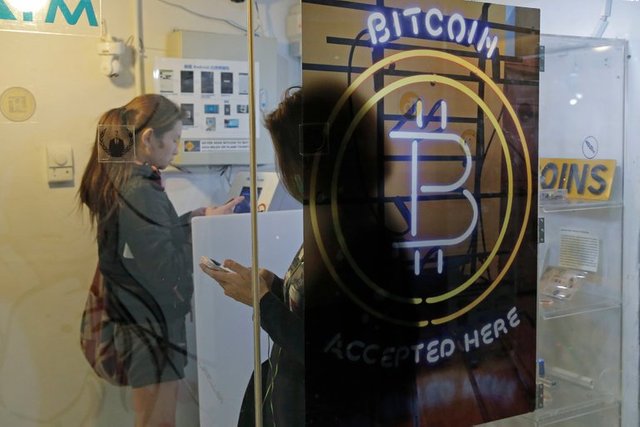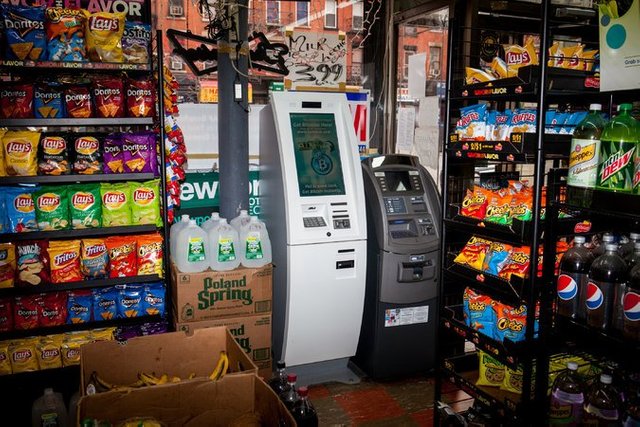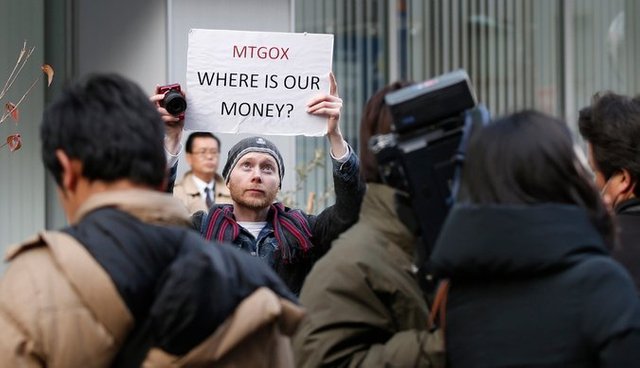I Was So Wrong About Bitcoin. Here’s Why...

(Image above: People using a Bitcoin ATM in Hong Kong. Bitcoin has soared in value, but more as an investable security like gold than as a currency for everyday purchases.)
Several years ago, tech enthusiasts in San Francisco began buzzing about a new and mysterious thing called Bitcoin. There were rumors that the virtual money, invented by a pseudonymous math genius named Satoshi Nakamoto, would revolutionize modern finance and render government-backed currency obsolete. Or maybe it was just a passing fad.
I wanted to understand the phenomenon for myself. So in 2013, I bought a single Bitcoin, a clunky and labor-intensive process that involved going to a CVS and using MoneyGram to wire the dollar value of a Bitcoin — which was around $140 at the time — to a cryptocurrency exchange. I sold my Bitcoin a week later for a small loss, thoroughly unimpressed with the experience and pessimistic about the virtual money’s prospects.

“The Bitcoin dream is all but dead,” I wrote.
Photo
The offices of Coinbase, the largest consumer trading platform for Bitcoin, in San Francisco. Credit Jason Henry for The New York Times
Hoo boy, did I blow it. Today, the Bitcoin I sold for about $140 would be worth more than $15,000, and cryptomania has seized the entire world. As of this week, Bitcoin futures are trading on the Chicago Board Options Exchange, and Coinbase, the largest consumer trading platform for Bitcoin, briefly crashed last week because of a huge influx of traffic. And while experts are warning that the exuberance around Bitcoin is a classic sign of a bubble, few think it will disappear altogether even in the event of a crash.
What happened? Why did so many people — myself included — get Bitcoin so spectacularly wrong? After a couple of weeks of thinking about it, I can point to at least five bad assumptions I made.
I assumed that Bitcoin’s future depended on its everyday use.
In the early days of Bitcoin, its proponents envisioned people using cryptocurrencies to buy food, pay their rent and make other day-to-day purchases. Eager to bring Bitcoin to the mainstream, they set up Bitcoin ATMs to facilitate easy transfers and encouraged their local restaurants and bars to start accepting Bitcoin payments.
Photo
A Bitcoin ATM at a grocery in midtown Manhattan. Bitcoin advocates once imagined using cryptocurrencies to buy food and pay the rent. Credit Danny Ghitis for The New York Times
Today, though, hardly anyone is spending Bitcoin on actual goods and services. (Why would you, if the value could jump 40 percent in two days, as it did last week?) And few merchants have gone through the hassle of updating their systems to accept cryptocurrency.
“The disparity between virtually no merchant acceptance and Bitcoin’s rapid appreciation is striking,” a team of Morgan Stanley economists wrote earlier this year.
As it turns out, while few people want to use Bitcoin as a currency, plenty want to treat it as an investable security, similar to gold or silver, especially while the price keeps rising.
I assumed that the blockchain would eclipse Bitcoin itself.
One of the earliest predictions among Bitcoin skeptics and boosters alike was that Bitcoin itself would be just a predecessor technology to the real, lasting innovation: the blockchain — the peer-to-peer ledger system that records cryptocurrency transactions and allows them to operate without a central authority. I agreed, thinking that the blockchain had real promise, but that Bitcoin would ultimately fade away.
Four years later, there has, in fact, been enormous hype around blockchain projects. (One British company added the word “blockchain” to its name and saw its shares immediately jump nearly 400 percent.) But that frenzy hasn’t detracted from investor enthusiasm for Bitcoin itself — in fact, it has amplified it. And the potential applicability of blockchain technology to all kinds of different industries, from auto manufacturing to insurance to groceries, has inspired lots of non-techies to learn about cryptocurrencies, and served as an intellectual on-ramp for new Bitcoin investors.
I assumed that regulators would crack down faster.
In the frontier days of cryptocurrency, it seemed that every other story was about how criminals and tax-evaders were using Bitcoin to buy and sell illegal goods and services. A huge dark-net narcotics market, Silk Road, was broken up, and its owner was sentenced to life in prison. Several large cryptocurrency sites suffered hacks and thefts. It was easy to think that these problems would lead regulators to take swift action against Bitcoin.
Photo
Mt. Gox, an early Bitcoin exchange, collapsed in 2014 after losing $500 million of customer money to hackers. Credit Toru Hanai/Reuters
But regulators have been late to the game. The I.R.S. didn’t issue official guidance on the tax treatment of Bitcoin and other digital currencies until 2014, and the Securities and Exchange Commission has just recently started to look at whether initial coin offerings, a kind of public auction of new cryptocurrencies, should be more closely regulated.
Partly, this is because some Trump-era regulators seem more interested in rolling back existing rules than making new ones. But it’s also a reflection of the way regulators tend to operate — many are reactive, and Bitcoin is still a relatively esoteric product that hasn’t claimed many real-world victims yet. There might well be a regulatory reckoning as Bitcoin moves closer to the mainstream, but for now, it’s still the Wild West.

I assumed that Wall Street would stay away.
Back in 2013, when I began asking Wall Street bankers about Bitcoin and other cryptocurrencies, their reactions ranged from polite dismissal to outright mockery. Few thought digital currency had any chance of succeeding, and many shared the view of Jamie Dimon, the chief executive of JPMorgan Chase, who has called Bitcoin a “fraud” that would only appeal to murderers and drug dealers.
But banks are ultimately service businesses, and I underestimated Wall Street’s philosophical flexibility when confronted with a new product that its clients really wanted to trade. Now, in the same way that the rise of junk bonds created an entirely new lucrative finance niche in the 1980s, Bitcoin’s rapid ascent has pulled even the most traditional financial institutions into the fray. There are now dozens of cryptocurrency-focused hedge funds, and even Goldman Sachs is clearing Bitcoin futures transactions for some clients. The arrival of institutional investors into the cryptocurrency market has begun to make Bitcoin look less like a fringe technology project, and more like any other securities market.
I assumed that Bitcoin’s extreme volatility would be a turnoff.
When Bitcoin’s price was swinging wildly between $100 and $200, sometimes within a few days, I thought to myself, “Who would sign up for such a roller-coaster ride?” I naïvely thought that what people liked about money was its stability, and knowing that $100 today would still be worth $100 tomorrow.
But you know what’s more popular than stable monetary instruments? Casinos! People love to gamble, and the spectacular rise of Bitcoin — especially in the age of social media, which tends to hasten trends and encourage bandwagon behavior — has encouraged a set of thrill-seeking speculators to bet big on the currency, hoping to make a quick buck and get out before a crash.
This behavioral dynamic should have been clear to me earlier. In a low-interest-rate environment, when many of the fastest-growing companies are privately held and wages aren’t keeping pace with inflation, there aren’t many investments that can produce outsize returns for the average person. Many Bitcoin buyers aren’t bothered that their $100 could become $200 overnight, or crash to $10 — in fact, that’s part of the appeal.
Real Bitcoin enthusiasts, of course, will say that I’m still missing the point, and that today’s trading mania is just a prelude to an even bigger, more transformational era of cryptocurrency. And while I still have my doubts, I can’t credibly predict that they’re wrong. After all, look what happened the first time.
Original story source: nytimes.com/2017/12/12/technology/bitcoin-predictions.html
well that's the hard truth. Bitcoin has taken the world by storm yet some people still remain skeptical about it.for those who had courage to en-devour into it are enjoying huge profits unlike anything ever witnessed. even though there had been altcoins popping up each day, it still does not cause btc to reduce its speed at growth but rather added more fuel to the fire. always remember never to rely on the the sole opinion of those who have never entered into it, because they will only give you bad advice.
Hi! I am a robot. I just upvoted you! I found similar content that readers might be interested in:
https://www.nytimes.com/2017/12/12/technology/bitcoin-predictions.html
Congratulations @newsworm! You have completed some achievement on Steemit and have been rewarded with new badge(s) :
Click on any badge to view your own Board of Honor on SteemitBoard.
For more information about SteemitBoard, click here
If you no longer want to receive notifications, reply to this comment with the word
STOP